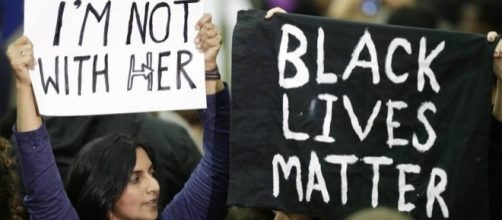After hearing about yet another police shooting, (this time Keith Lamont Scott in Charlotte, North Carolina on September 20th, 2016), I realized I needed to write an article about the lessons we can learn from the film, “Pride.” Detailing the tumultuous relationship between Welsh miners and London gay activists during the 1984 miners strike, the film demonstrates the need for allyship in social justice movements like Black Lives Matter.
About The Film
In “Pride,” gay rights activist Mark Ashton decides that London gays and lesbians should support the Welsh miners also suffering from Margaret Thatcher’s policies and threats.
Ashton and his activist friends create an organization called Lesbians and Gays Support The Miners (LGSM)and start advocating for the miners despite having no stake in their fight. Of course, that support is not easily accepted or easily given. Screenwriter Stephen Beresford and director Matthew Warchus made sure to emphasize that bias creates tensions between parties. These two groups unite through their disdain for Margaret Thatcher and personal common ground.
Note: Although the miners are defeated, it is an honorable defeat. The gay activists’ support allowed them to hold out longer than they ever could on their own, and the miners repay them by leading the following Pride March and approving the motion to enshrine gay and lesbian rights into the Labour Party’s Manifesto.
What the film teaches us
Even if we don’t succeed, alliances between underprivileged groups are not only beneficialbut necessary for any sort of progress. Takethe #noDAPL movement in North Dakota for example! A diverse compilation of individuals, including Black Lives Matter protesters and various Native Tribes with a history of tense relations with each other, are standing in solidarity against the Dakota Access Pipeline and defending their right for clean water. The #noDAPL movement is a contemporary version of the miners strikes.
Those protesters know that to properly fight for our rights, we need to stop fighting each other. We need to support those who are oppressed differently. We must throw away the mentality that claims one oppression must be dismantled before the rest.
And if you really think your oppression is the most important, think of it this way: won’t you need support for your fight, too? If you help other oppressed groups first, they’ll help you later. Wouldn’t it be worth the time and energy to fight for them now if that ensures more resources for your own fight? If you can’t see why their fight matters, be selfish.
Do it for yourself
There is still every -ism and -hobia you can think of, and we need to band together to fix these social injustices. Yes, protests are necessary, but we can show our solidarity in the little things, like admitting that "Stonewall" is disgustingly whitewashed or recognizing the issues of saying All Lives Matter or just listening, really listening, to our underprivileged brothers, sisters, and siblings.
A key part of success for social justice movements is alliances. Whether Keith Lamont Scott had a gun or a book, I still support the protesters and anxiously await for the body cam video from Tuesday. I support Black Lives Matter.
And whether you are white, brown, black or something in between, take a lesson from "Pride" and listen to them. Support them. I’m sure they did or will support you once, too.

